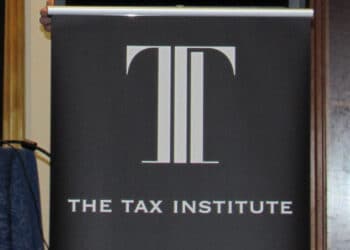In a budget announcement, the government has revealed plans to change the annual audit requirement to a three-yearly requirement where SMSFs have a good history of good record keeping and compliance.
The budget papers said that the measure will apply to SMSF trustees that have a history of three consecutive years of clear audit reports and that have lodged the fund’s annual returns in a timely manner.
The new measure is intended to start on 1 July 2019. However the government has said it will consult with stakeholders on the proposal.
BDO superannuation partner Paul Rafton said this proposal presents some potential risks and puts a lot of onus back onto to the SMSF trustee.
“I don’t think it’s such a bad thing having a regular heath check on an annual basis from an independent auditor,” said Mr Rafton.
“It could mean that it’s three years before the ATO catches up with someone whose compliance history is not as squeaky clean as it used to be. So there’s a three-year window really, if they’ve got a really good record and then for whatever reasons they go off the rails, it might be three years before the ATO and the auditor catch up with them.”
Hayes Knight director Ray Itaoui agreed that the measure is likely to create “practical hurdles” for the industry and that having two years with no audits could present opportunities for creative trustees to manipulate the superannuation system.
“An auditor will also not be able to sign off on the third year without having a level of comfort as to what has transpired in previous years.
“I can’t see this type of structure being effective, and the risk to auditors and trustees will be magnified,” he said.
The ATO, he said, has been very vocal about low-cost audits recently, and potential compliance issues being missed.
This measure he said could see the emphasis being placed on these audit reports, where there might be funds considered as having ‘good record keeping and compliance’, when this is not the case.
Auditors could also face seasonal swings in workflow, which will be extremely difficult to manage, and force them to stagger audits across the three years.
He also disputed whether it would actually reduce red tape and costs for clients given that auditors would likely charge the client for three years anyway.
“Furthermore, depending on how this three-year cycle will work, smaller auditors might be indirectly incentivised to ‘find’ issues with the audit, as issuing an unqualified audit report may impact their revenue in the following year,” he said.
The SMSF Association conversely welcomed the change, describing it as a positive step.
SMSF association chief executive John Maroney said the proposal, “which will cut red tape for the SMSF sector, is a fitting reward for trustees who strictly adhere to the regulatory regime”.



The investment rules are significant for SMSF’s and compliance issues have increased with the TBC. It is difficult enough to get most clients’ documents arranged for 12 months let alone for 36 months. I see merit in the financial statement audit being pushed out to 3 years, but the compliance audit needs to be maintained on an annual basis to preserve the integrity of the system. The royal commission has recently showed that without proper oversight some terrible things will happen. The absolute majority of trustees want to do the right thing, but even these people sometimes make a mistake. The advice they rely on it not always right (RC showed this). Independent review will likely identify and correct these issues in a more timely fashion. Given that the audit standards require auditors to be satisfied that opening balances are correct, if they are only auditing every three years they are obligated to do additional testing to have the degree of certainty required under the auditing standards. Perhaps the solution would be for the standards setters to talk with concerned parties and prepare “modified rules” that would make the proposed system actually workable. Outsourcing overseas may be cost effective, but it is un-Australian!
I don’t think the issue is lower compliance costs as the average audit fee is about $550 or less than .05%. If the Government really wanted to lower costs then they could look at fees charged by Fund Administrators and Financial Planners which amount to 10 or 20 times the audit fee. The Supervisory levy of $259 could also be eliminated as other tax entities don’t pay these fees.
The issue is not wether we do an audit every 3 years, or every year, the issue is do we audit 3 years of work once every 3 years! Because you cannot audit just one year in 3 without confirming with certainty on your part that the prior 2 unaudited years have left the client in a position of compliance.
Consider audit firms are themselves not subject to any external audit including compliance with auditing standards; in case of serious non-compliance it is the trustee not the auditor who cops the blame; in TRIO super, the largest fraud in super auditors who gave unqualified reports on non existent shadow derivatives got off scott-free; there is no scientific correlation between the frequency with which earth orbits the sun and the periodicity of external checks on financial accounts. The time for triennial audits is overdue!
I don’t agree. In my experience is the job of the auditor that prevents trustees in many cases to consider their super as their personal lender. And many accountants don’t do the excellent work that you mention and often rely on auditor expertise to get them right. My opinion is that if the audit is considered necessary it should be annual as the logic suggests. Alternatively it might be just abolished, give a proper time frame to audit firms to reconvert (10 years) and leave the job to the ATO as it does for businesses.
The ‘elephant in this room’ is whether a financial statement audit is necessary. I don’t believe so but believe an annual compliance audit is necessary.
To conduct an annual financial statement audit for a SMSF is a meaningless exercise, and takes time, and adds cost.
The end state that this most recent thought bubble seem to be seeking, could be achieved by making the compliance audit the only necessary feature of SMSF annual compliance sign-off.
(I live in hope that one day, Treasury will consult appropriately, before coming out with this type of stuff.)
“Send audits overseas”
I run a small audit firm. Depending on staffing levels at the time of the 3 year audit hole I will most likely reduce the workforce drastically. It makes no sense to maintain a workforce with little work available. When the audits kick in again years later I will need to employ staff again requiring significant training given they have not audited funds for 3 years. Alternatively to avoid costs of recruitment and training I may send all audits overseas which I have been reluctant to do in the past.
Here is a hurdle, what if my administrator does not get my accounts done in time. 3 years of clear on time lodgement.
Insyt was calling for an extension for CGT relief. Now you only want an extension if you cannot lodge in time.
I am aware of one administrator that is miles behind in this year’s lodgement. So the trustees will be up for annual auditing until such time as the administrator gets their act together (unlikely) or the trustee shifts to a better provide (most likely).
So much for real time auditing
What’s to stop this from happening?….
– Set up a fund say with $200k and have 3 years audited.
– In the 4th year withdraw say $150k.
– Fund is audited again in the 7th year with $50k in the bank and no compliance issues
During the “non-audit” period, trustees could carry out various acts of non-compliance which would not be picked up, ever, unless the auditor were to audit the previous years which then defeats the point of introducing the non-audit period.
An annual compliance audit is done for an important reason and the very fact an audit is required each year which may result in penalties for non-compliance, acts a deterrent to non-compliance. It’s comparable to taking the police force away from a town that has a history of no crime.
I probably agree with your analogy – but I’m beggared by your logic. Exactly why does a town with no crime need a police force? The assumption must be that all people are inherently bad and its only the police presence that is keeping them in line. I’m appalled at the “police state” and “nanny state” mentality that pervades and the apparent assumption that all SMSF Trustees – and their trusted Advisers – are either incompetent or criminal (and just waiting for the “police” to turn their backs). No wonder you haven’t put your name to your comments. I concur with some of the comments on here that some Trustees will be comforted by an Annual audit. They still have that choice (albeit it implies a certain level of mistrust of themselves and/or their Accountant, Administrator etc). What we’re talking about here is what is mandatory and whether people who have their act together might be allowed to be rewarded by a lower compliance liability.
If your SMSF admin provider /accountant is not identifying compliance issues and telling you how to go about rectification BEFORE the fund is sent for audit, then you’ve got the wrong admin provider!
I run all functions of my SMSF except of course, auditing. I think Craig is writing for himself without thinking that there are many people out there who are not as competent or as trustworthy as he or I am. Non-compliances abound – but not in my fund of 24 years. As I’ve watched government make the requirements on audits and auditors more and more complex and expensive to the point where I feel sympathy for anyone who takes on the role of a super auditor, it is interesting that suddenly we don’t have to go through these hoops and hurdles for 2 years of each 3 year cycle. Preparation for my annual audit is intense. I just can’t imagine what work load I’ll be up against when I have to prepare for a 3rd year audit. Surely the auditor will need to know something about the previous 2 years. If this proposal comes in, I would be happy for auditors to provide a “not so formal” audit for the 2 middle years. As in, do a proper audit, but not have to do all the government paperwork and document copying BS required by a full audit – hopefully at a reduced price. With all the heavy penalties for blowing your nose at the wrong time in the super system, I think this would provide some protection and certainty to trustees and auditors during each 3 year cycle.
Where there have been significant accounting errors in previous years which were able to be corrected during the audit, it may now be more awkward to unwind the resulting mess if several years have elapsed.
What self-serving, and truly insulting, garbage. This is predictable fear mongering from firms making solid and predictable revenues from largely unnecessary compliance work. “Puts a lot of onus back onto the SMSF Trustee”. Yep – that’s certainly what the big “S” at the start of SMSF implies. Maybe Government and Industry should have more rigor around who is allowed to opt for Self Managing their Super in the first place, i.e. be confident people know the rules, and then (largely) get off the field and let the players play. The notion that a Fund will have a history of (at least) three years of solid compliance and then “run off the rails” the very next day is laughable. The only way that would happen would be intentionally – i.e. criminally – and the statute of limitations is well more than the three year cycle at which “the ATO and the auditor catch up with them”.
I agree – annual SMSF audits have been a problem for sometime now. Issues surrounding low cost auditors, poor quality auditing, the fact that most SMSF auditors are appointed by the SMSF’s accountant not the trustee (some SMSF auditors even advertise the fact that they will not contact the trustees), the fact that most SMSFs have good accountants who prepare correct financials and tax returns and finally even if there is a breach most are not that serious and as as result the ATO does little about them all adds up to a very strong argument that annual audits are not necessary. This policy is nothing short of a red tape reduction measure and the fact is we need a whole lot more of them.